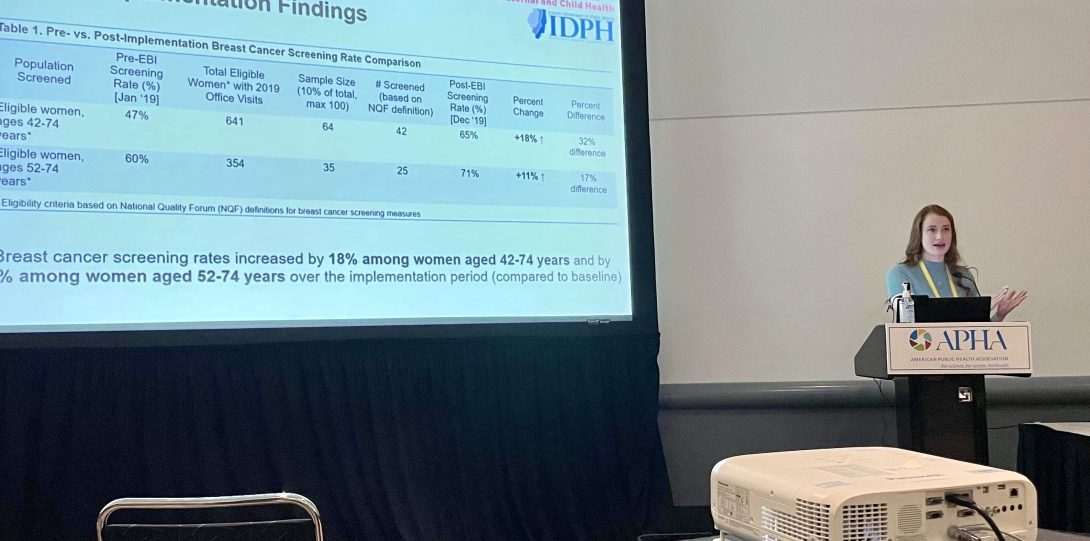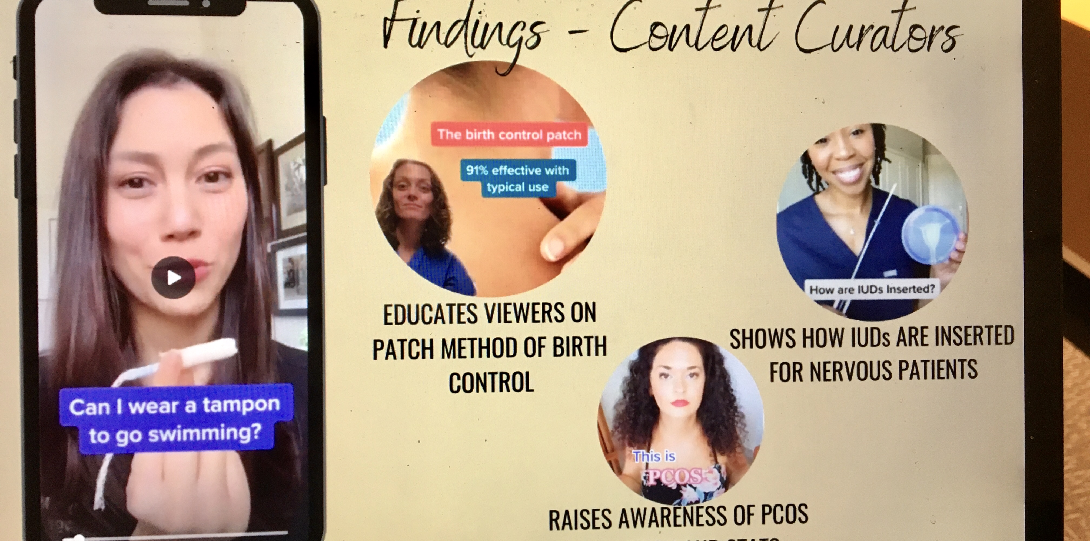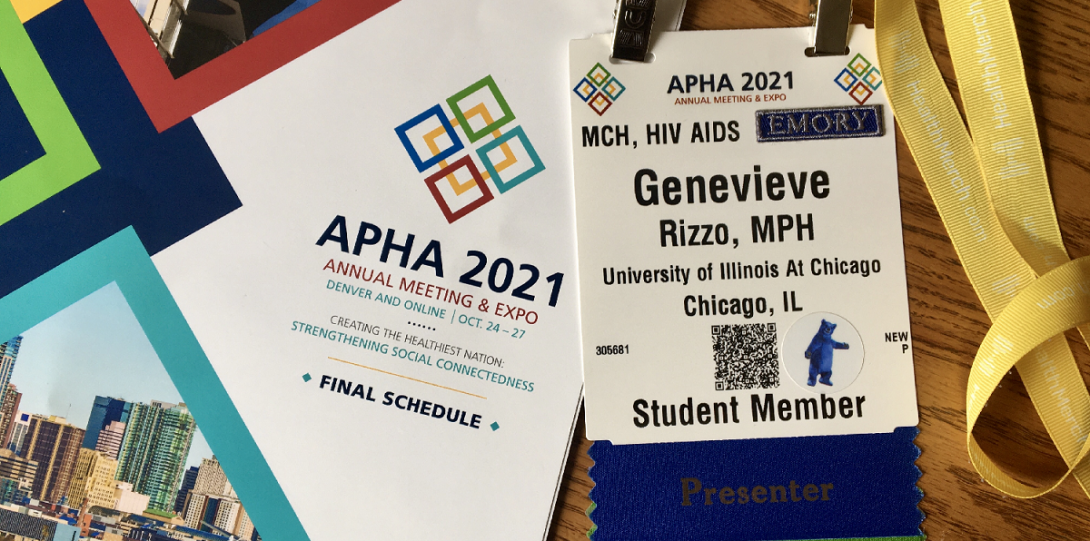My Experience at the 2021 APHA Annual Meeting and Expo
1. Why did you want to attend the 2021 APHA Annual Meeting and Expo?
I wanted to attend the 2021 APHA Annual Meeting because I had two of my research abstracts accepted for in-person oral presentation in Denver! This was my first time presenting something other than a poster at a national conference, so I was nervous and excited to be part of the oral panel sessions and give longer, more in-depth presentations about the work I helped conduct as part of my research assistantship with Dr. Arden Handler and her evaluation of the Illinois Breast and Cervical Cancer Program (IBCCP). My first presentation was titled, “The impact of the COVID-19 pandemic on a breast and cervical cancer safety net program for uninsured women” and was held as part of the Cancer Forum’s oral session regarding “The Impact of the COVID-19 Pandemic across the Cancer Care Continuum.” My second presentation was called, “Best practices for evidence-based intervention implementation to improve breast cancer screening rates at a federally qualified health center” and was held as part of the Community Health Planning and Policy Development’s oral session about “Applying Quality Improvement Strategies to Promote Community Health.” Both of my presentations were followed by lively Q&A sessions, which was so rewarding. I’m extremely grateful for the travel grant I was awarded by the CoE to be able to attend and present at this conference.
In general, I also enjoy attending the APHA Annual Meeting because it’s a great opportunity to catch up with colleagues; I love getting to see former classmates from my undergrad and master’s public health programs and learning about what they are currently up to. And it’s also lovely to be in a place surrounded by like-minded people who are also passionate about public health issues.
I also felt safe attending in person in Denver because of the myriad safety precautions and COVID-19 protocols the APHA leadership team put in place (and communicated to attendees/presenters months in advance). All attendees and presenters were required to be vaccinated and show proof of vaccination to be allowed into the venue. Everyone was required to wear a face mask at all times (except when actively eating or drinking). There was a color-coded badge system in place to signify an individual’s comfort level regarding social distancing; green meant you were okay with hugs and handshakes, yellow meant please touch elbows only, and red signified a request to keep a six foot distance. There were also hand sanitizer stations set up around the conference center, and seating in all events was spaced out. I’m glad that APHA offered both in-person and virtual components to make this event more accessible to everyone during the pandemic.
2. Which general topics or specific presentations are you looking forward to hearing more about at the 2021 APHA Annual Meeting and Expo?
There are SO many topics and sessions simultaneously occurring during the conference, so it is very hard to choose what to attend! Because I was able to be there in person, I wanted to attend several of the General Sessions that were hosted by APHA. These sessions covered broader issues in public health (like health equity and the pandemic), and were very engaging. The opening keynote by Heather McGhee about the cost of racism was fantastic, and the closing remarks by Dr. David Satcher about public health’s progress over time were encouraging. There was also a live taping of a public health podcast called “America Dissected” that was super cool to be in the audience for!
My research interests are within maternal and child health (MCH) and sexual and reproductive health (SRH), so I tried to attend as many sessions as possible under those themes, such as “Epidemiology of Adverse Childhood Experiences,” “Preventing Family Violence,” and “Sexual Violence and Consent.” The most interesting oral session I attended was called “Experiences of Mistreatment During the Prenatal Period” and included four panelists sharing their mixed methods work on this topic; the results were incredibly disheartening and reminded me of the importance of the MCH program in particular. I also attended a fascinating roundtable about “SRH and COVID-19” that included an analysis of Gen Z’s engagement with SRH-related content on TikTok, and another presentation about how young adults were using Tinder during the pandemic.
I am also grateful that, due to this year’s meeting being a hybrid model, all presentations were recorded and made available to attendees after the conference. I have a whole list of virtual presentations that I couldn’t attend due to scheduling conflicts that I’ll now be able to still watch!
3. Can you talk more about your involvement in APHA, including any leadership positions you may currently hold?
I am a student member of APHA, and I am part of the Maternal and Child Health and Sexual and Reproductive Health sections.
4. How can students get involved with APHA if interested?
Although I personally have not applied for any leadership positions, after having spoken with several APHA section leaders in Denver, I would encourage students who want to get involved to first figure out what areas they are interested in, then try reaching out to those section leaders. Sections are always looking for young people and students to serve on their leadership teams. There is also a Student Assembly that is an accessible way for students to get involved, too!



